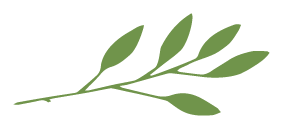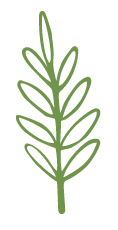
herbal medicine
Today herbal medicine is being increasingly validated by scientific research.
People visit a herbalist for the same reasons that they would visit their GP. Herbal medicine is particularly good for long-term chronic conditions that haven’t responded well to other forms of treatment. Unlike pharmaceutical drugs that often come with a long list of side effects and just mask symptoms, herbs will address the root cause of your health issues and transform your health naturally.
Herbs are safe and suitable for people of any age including children. Herbs can be used safely alongside pharmaceutical medications.
Some of the most common conditions that herbal medicine can support include but is not limited to:

Gastrointestinal complaints
Constipation
IBS
Inflammatory bowel disease

Immunity problems & respritory conditions
Autoimmune conditions
Low immunity
Allergies/asthma
coughs/colds/flu

General wellbeing
Low energy
Low immunity

Cardiovascular issues
High blood pressure
Poor circulation
Varicose veins

Men’s health
Erectile dysfunction
Low sperm count
Prostate health

Nervous system
Stress
Anxiety
Depression
Insomnia

Skin conditions
Eczema
Psoriasis
Acne
Rosacea

Women’s Health
MENOPAUSE/Pre-menopause
Painful/heavy/irregular periods
Lack of period
Endometriosis
PCos

Musculoskeletal
Rheumatoid arthritis
Osteoarthritis
Gout
Rheumatism
Fibromyalgia

Endocrine
Hypothyroidism
Hyperthyroidism
Adrenal Fatigue
Chronic Fatigue Syndrome
Addison’s Disease
Cushing’s Disease

cancer support
immune support
support for side effects of radiotherapy/chemotherapy
support stress
support energy levels
Post treatment recovery support
I often get asked, ‘What herb should I take for my cold?’, ‘What herb should I take for my migraines?’, ‘What herb should I take for my arthritis?’, ‘What herb should I take for my eczema?’
For acute conditions, such as a cold or cut finger, this is fairly straightforward to answer, but for chronic conditions it becomes more difficult, because any good herbalist will not match a herb to a disease but match the herb to the person.
More than 2,000 years ago Hippocrates, the Father of Medicine, said, ‘It is more important to know the person who has the disease, than the disease the person has”.
A good herbalist will assess the person’s constitution and the energetics of their disease to determine which herbs are best for them. They will also consider the synergistic effects of combining herbs in a formula.
The correct dosage is very important, as each herb is very different. A few drops of lobelia tincture can promote relaxation but a strong cup of lobelia tea could make you vomit. Milky oats tincture has a very different therapeutic effect to dried milky oat tea.
Healing also takes time, especially with chronic conditions. Changes to diet and lifestyle also need to be implemented.
No system of healthcare is 100% bulletproof but herbs used correctly are extremely effective and safe.
